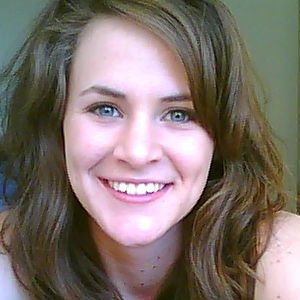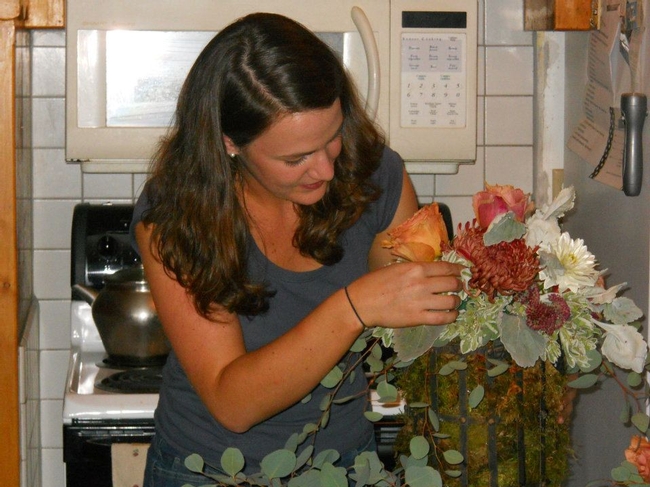- Author: Amanda Crump
To provide continuing education for Master Gardeners, the Statewide Master Gardener Program provides regional trainings. An example is the Advanced IPM Training being offered next week in Davis, CA. Trainings like these are always popular and serve as a place for Master Gardeners to learn new things, refine their skills, interact with University of California scientists, and meet other gardeners. By promoting activities where Master Gardeners learn together, the Statewide Master Gardener Program ensures that Master Gardeners are up-to-date with the most recent research recommendations from the University of California.
The next set of regional training sessions will be the Edible Landscaping series. In this training, Master Gardeners will learn the ins and outs of incorporating edibles into their landscapes. The training includes planning and design, policies, maintenance, harvest and storage, and food safety. Attendees will then be certified to teach others in Edible Landscaping practices - a skill that is in high demand.
Master Gardeners might recall attending the Sustainable Landscape Train the Trainer series two years ago. The Statewide Master Gardener program surveyed the people who were subsequently trained by Master Gardeners and we found some wonderful things! For example, 77% of the people who did not compost at the time of training indicated that they had started composting after three months! That is a significant change in their behavior that definitely leads to a more sustainable California. In addition to composting, over 40% more people began leaving portions of their gardens undisturbed for wildlife, 20% of those surveyed began using better irrigation techniques, and just over 10% planted drought tolerant plants. These examples are just a handful of the practices that were influenced by the Sustainable Landscape classes.
Together, through these classes, the Master Gardeners and the Statewide Master Gardener Program are making a difference! See you soon at one of the Edible Landscape Training sessions!
- Author: Judy McClure
It can be challenging for a serious gardener to pass a shredding machine and not stop and use it to transform ‘paperwork’ into worm compost bedding. Sorry, your Master Gardener papers are no longer potential bedding material. Since the Statewide Office staff has embraced making the volunteer time submission and the annual recertification process as paper free as possible you’ll need to locate another source of worm bedding. Entering your volunteer experiences, completing the three recertification forms and submitting the insurance payment is now fast, easy and paperless.
Gardening tasks, family obligations and professional obligations fill our June days, leaving just a few precious moments for completing the Master Gardener recertification process. Why bother taking the time to recertify? During the past year you probably experienced the joy of learning about a new plant, memorized another botanical name, or identified an invasive pest. You most likely attended a monthly meeting or an advanced training developed specifically for Master Gardeners, plus your network of friends expanded to include new gardening buddies. Recertify by June 30 to assure you do not miss any of the many learning opportunities waiting for you in the 2012-13 program year.
During the 2012-13 program year the Statewide office will provide you the opportunity to attend advanced horticulture and IPM trainings and assist with planning the 2014 Conference. Your local program most likely has a wealth of rewarding opportunities available for you to educate and inspire the home gardener. Unfortunately, there will probably be another new invasive pest waiting to make your acquaintance.
Take a few minutes to document in VMS the valuable hours you contribute in your community. Not only do your individual volunteer projects have a significant impact on your local community, they also assist Pam Geisel and Aubrey Bray in prioritizing program development and training needs on the statewide level. As individual counties and the UC system continue to face financial challenges, your hours are a vital component in securing future funding. During the past year you chose to contribute your valuable time to the Master Gardener program. Now it is the time to verify that the benefits of your volunteer projects are recorded and acknowledged on both the county and statewide level.
Following the completion of recertification and the entering of your volunteer hours, enjoy a snack of fresh fruit or vegetables. The vegetable scraps make a wonderful addition to the worm compost bin. Don’t have a worm compost bin? Recertify and I guarantee before long a fellow Master Gardener will introduce you to the wonderful world of worms.
Thank you, for being a part of the UC Master Gardener program.
- Author: Sam Foushee

The next conference will be in 2014. The results of a statewide poll are now in, and the preference for location was heavily in favor of the Tenaya Lodge near the south entrance of Yosemite National Park. The Tenaya is a beautiful facility in a gorgeous location, and I'm certainly looking forward to spending a few days there when 2014 rolls around! 
What are some of your favorite memories from past conferences? Will you attend Master Gardener Conference 2014?
- Editor: Pamela M. Geisel
- Author: Aubrey Bray

A little about me….I was born and raised in Lake Isabella, CA a quaint little town nestled in the Sierra foothills. I found my love for agriculture through high school agriculture classes and the FFA. I attended Cal Poly State University, San Luis Obispo and received a B.S. in Agricultural Business. While at Cal Poly, I discovered my love for gardening through numerous Horticulture classes and competing with the floral design team. Living in a small studio on the Central Coast has limited me to container gardening for the past 5 years, but my husband and I are excited to move to Red Bluff and put down roots—literally and figuratively! I love m
Speaking of which, I’ll be taking a little tour over the next month or so to visit county programs. I am looking forward to meeting all of you and visiting some of your programs in the next few weeks to get a glimpse of what Master Gardeners looks like at the local level.
So tell me, what is your favorite thing about Master Gardeners?
- Contact: Pam Geisel
- Author: Sam Foushee
This is the first of a series of short articles about the 
Of the many benefits that can be credited to the state office and coordinator, I think the one that has directly impacted me and all ACMGs the most has been the creation of the Volunteer Management System (VMS). There are still a number of us who remember what it was like pre-VMS. It seems now that our previous recordkeeping system for hours and contacts, our ability to schedule events and activities and our ability to commuicate with one another was like something out of the Stone Age. And the VMS, thanks to our statewide office, keeps improving to meet our needs even better. Currently they are working on version 3.0, which should be done in the next 3-6 months.
Anyone else remember our Stone Age past? Are you looking forward to the new VMS system?



